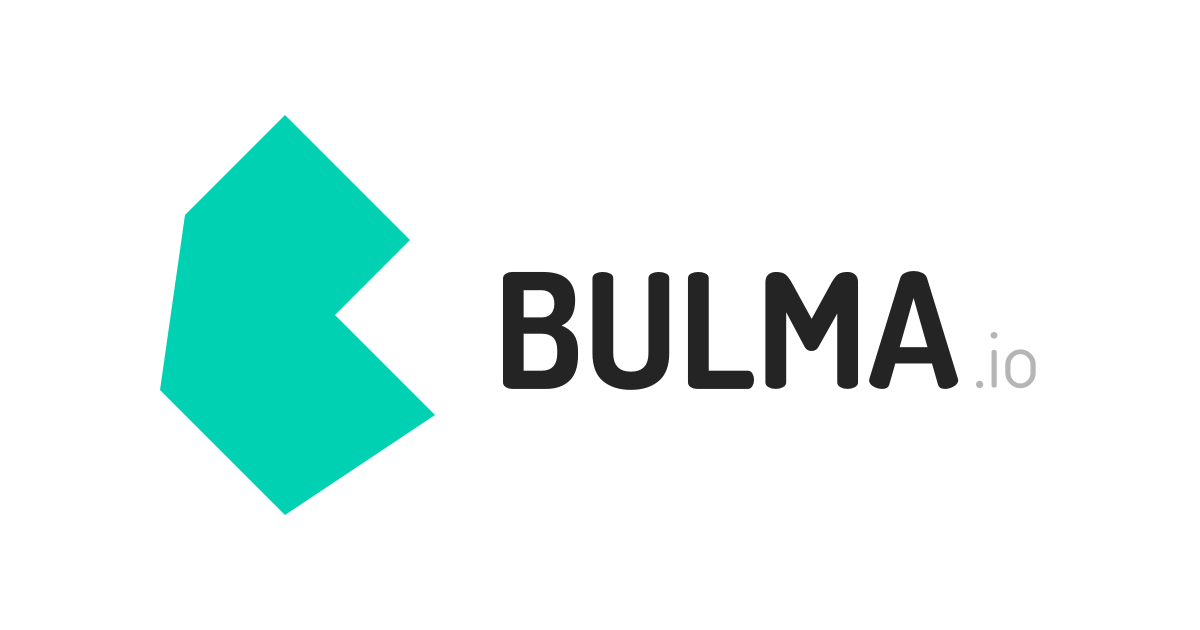| .github | ||
| css | ||
| docs | ||
| sass | ||
| .editorconfig | ||
| .gitignore | ||
| bower.json | ||
| bulma.sass | ||
| CHANGELOG.md | ||
| LICENSE | ||
| package.json | ||
| README.md | ||
Bulma
Bulma is a modern CSS framework based on Flexbox.
Quick install
Bulma is in early but active development! Try it out now:
NPM
npm install bulma
Bower
bower install bulma
CDN
https://cdnjs.com/libraries/bulma
Feel free to raise an issue or submit a pull request.
CSS only
Bulma is a CSS framework. As such, the sole output is a single CSS file: bulma.css
You can either use that file, "out of the box", or download the Sass source files to customize the variables.
There is no JavaScript included. People generally want to use their own JS implementation (and usually already have one). Bulma can be considered "environment agnostic": it's just the style layer on top of the logic.
Browser Support
Bulma uses autoprefixer to make (most) Flexbox features compatible with earlier browser versions. According to Can I use, Bulma is compatible with recent versions of:
- Chrome
- Edge
- Firefox
- Opera
- Safari
Internet Explorer (10+) is only partially supported.
Documentation
The documentation resides in the docs directory, and is built with the Ruby-based Jekyll tool.
Browse the online documentation here.
Related projects
- Bulma with Attribute Modules: https://github.com/j5bot/bulma-attribute-selectors
- Bulma with Rails: https://github.com/joshuajansen/bulma-rails
- iTemplate: http://itemplate.ga/
- Vue Admin powered by Bulma: https://github.com/vue-bulma/vue-admin
- Bulmaswatch — Free themes for Bulma: https://github.com/jenil/bulmaswatch
Copyright and license
Code copyright 2017 Jeremy Thomas. Code released under the MIT license.


